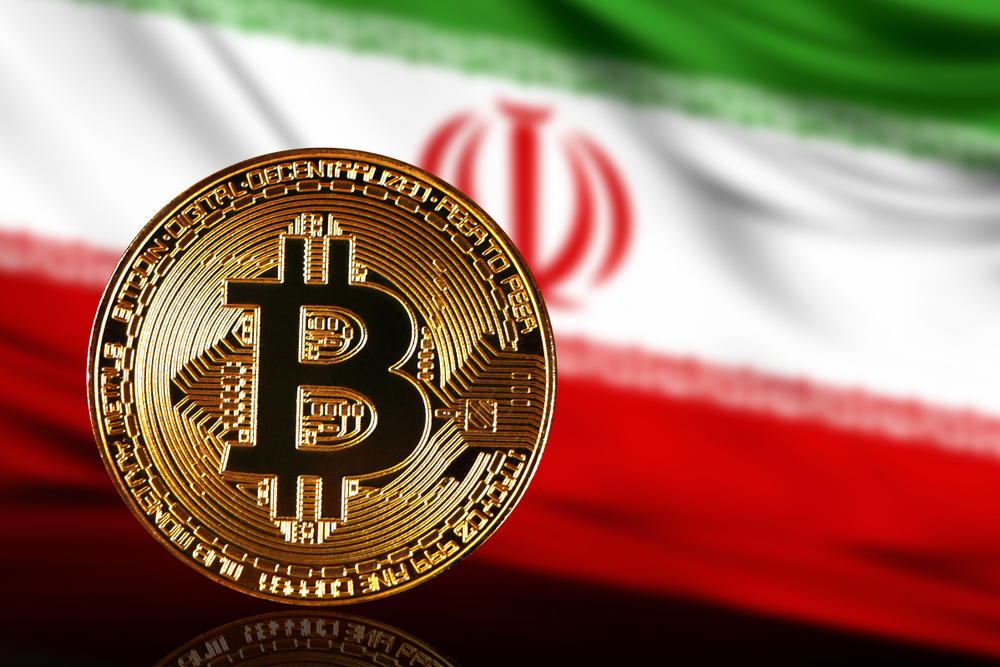Iran Unveils New Cryptocurrency Regulations to Boost Economic Growth
09.12.2024 14:00 1 min. read Alexander Stefanov
Iran's Central Bank has unveiled a new regulatory framework for the cryptocurrency sector, positioning itself as the primary authority overseeing the industry.
This policy allows the bank to license crypto brokers and custodians, with a focus on ensuring compliance with anti-money laundering (AML), tax, and counter-terrorism financing (CTF) laws. The framework also aims to support economic growth by leveraging cryptocurrencies for job creation and bypassing sanctions.
CBI governor Mohammadreza Farzin and Minister of Economic Affairs Abdolnasser Hemmati have emphasized managing the risks of crypto rather than imposing restrictive measures.
Iran sees cryptocurrencies as a solution to economic challenges, using them to circumvent international sanctions.
Crypto mining, legalized in 2019 and briefly suspended in 2021, resumed in 2022, marking a shift towards integrating digital assets into the economy.
This new framework extends the central bank’s control beyond mining to include broader cryptocurrency activities.
-
1
U.S. Lawmakers Target El Salvador With Crypto Sanctions Plan
10.07.2025 15:00 2 min. read -
2
Crypto Week Begins: U.S. Congress Advances Key Bills as Trump Pushes for Regulatory Clarity
15.07.2025 7:00 2 min. read -
3
Crypto Tax Policy in Spotlight as House Plans July 16 Hearing
10.07.2025 9:00 2 min. read -
4
Thailand Launches National Crypto Sandbox
17.07.2025 9:03 2 min. read -
5
House Clears Path for Landmark Crypto Bills: Vote Set for Thursday
17.07.2025 9:15 2 min. read
Senate Republicans Unveil Crypto Market Bill to Expand CLARITY Act
Senators Tim Scott, Cynthia Lummis, Bill Hagerty, and Bernie Moreno (R-OH) have released a discussion draft of a new digital asset market structure bill—framed as the Senate counterpart to the CLARITY Act.
Banking Trade Groups Urge OCC to Halt Digital Trust Bank Approvals
Five major banking associations are urging the Office of the Comptroller of the Currency (OCC) to delay approval of new national trust bank charters for digital asset firms, including Ripple, Fidelity Digital Assets, National Digital TR CO, and First National Digital Currency Bank.
Key Crypto Events to Watch in the Next Months
As crypto markets gain momentum heading into the second half of 2025, a series of pivotal regulatory and macroeconomic events are poised to shape sentiment, liquidity, and price action across the space.
What the GENIUS Act Means for Stablecoins, According to SEC Commissioner Hester Peirce
The signing of the GENIUS Act into law, represents a landmark step in U.S. crypto regulation, according to SEC Commissioner Hester M. Peirce.
-
1
U.S. Lawmakers Target El Salvador With Crypto Sanctions Plan
10.07.2025 15:00 2 min. read -
2
Crypto Week Begins: U.S. Congress Advances Key Bills as Trump Pushes for Regulatory Clarity
15.07.2025 7:00 2 min. read -
3
Crypto Tax Policy in Spotlight as House Plans July 16 Hearing
10.07.2025 9:00 2 min. read -
4
Thailand Launches National Crypto Sandbox
17.07.2025 9:03 2 min. read -
5
House Clears Path for Landmark Crypto Bills: Vote Set for Thursday
17.07.2025 9:15 2 min. read


